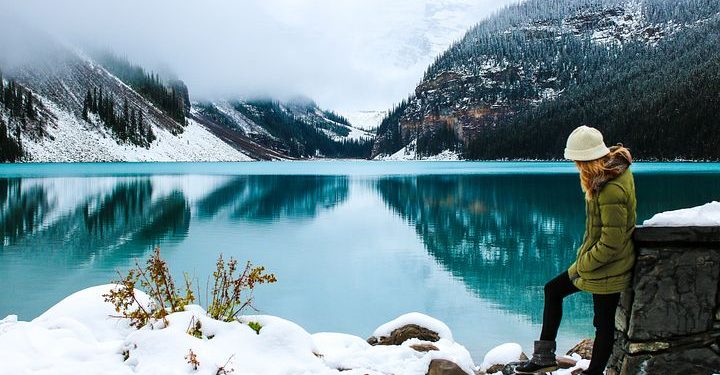The winter season is the coldest time of the year, and it is characterized by snow, ice, and freezing temperatures. The winter season typically lasts from December to February in the Northern Hemisphere and from June to August in the Southern Hemisphere.
The winter season is a time of great beauty, with its snow-covered landscapes, but it can also be a time of great hardship, particularly for those who live in areas with harsh and prolonged winters.
One of the most striking features of the winter season is the snow. Snow is frozen precipitation that falls from the sky in the form of ice crystals.
It is a common sight during the winter months, and it can transform the landscape into a beautiful and serene wonderland.
The snow can also be a source of fun and enjoyment, particularly for children who love to play in the snow and make snowmen.
Another characteristic of the winter season is the cold temperatures. The temperature can drop well below freezing, and it can be dangerous for those who are not properly dressed or who are exposed to the elements for too long.
The cold temperatures can also cause problems for infrastructure and transportation, leading to icy roads and power outages.
The winter season also brings with it shorter days and longer nights. The days are shorter because the tilt of the Earth’s axis results in the Northern Hemisphere receiving less direct sunlight during the winter months.
This can lead to feelings of depression and lack of energy, a condition known as seasonal affective disorder (SAD).
Despite the challenges that the winter season presents, it also brings with it many opportunities for enjoyment and celebration.
The winter season is a time for holidays, such as Christmas, Hanukkah, and Kwanzaa, and for special family traditions and activities.
Many people enjoy winter sports such as skiing, snowboarding, and ice skating, and winter is a perfect time for warm indoor activities like reading, playing board games and watching movies with family.
The winter season also brings a unique type of beauty to the landscape. The snow-covered trees and frozen lakes create a picturesque setting that is perfect for outdoor activities such as hiking, cross-country skiing and snowshoeing.
The crisp, cold air and bright sunshine can also make for great conditions for photography and bird-watching. In addition to the recreational opportunities, the winter season also provides important ecological benefits.
The snow and ice act as natural insulation, helping to protect plant and animal life from the cold temperatures. The frozen ground also helps to preserve wetlands and other fragile ecosystems.
However, with the decrease in temperature, the winter season also brings challenges for wildlife, particularly for animals that are not adapted to the cold.
Some animals migrate to warmer climates, while others hibernate to conserve energy. For the animals that stay, it can be a struggle to find food and shelter.
Another important aspect of the winter season is the impact on agriculture. The cold temperatures and snow can damage crops and make it difficult for farmers to work their fields. However, for some crops, such as winter wheat, the cold temperatures can actually be beneficial.
Despite the challenges, the winter season is an essential part of the natural cycle and it brings with it its own unique beauty and opportunities.
It is a time to celebrate and enjoy the holidays, to engage in winter sports and activities, and to appreciate the unique natural beauty of the season.
In conclusion, the winter season is a time of great beauty, but it also brings with it challenges and difficulties. The cold temperatures, shorter days, and snow can create problems for infrastructure and transportation, and it can be dangerous for those who are not properly prepared.
However, the winter season also brings with it many opportunities for enjoyment and celebration, as well as important ecological benefits.
The snow and ice act as natural insulation, helping to protect plant and animal life from the cold temperatures.
The winter season is a time for holidays, special family traditions and activities, winter sports, and outdoor activities such as hiking and photography.
It is also a time to appreciate the unique natural beauty of the season. It is important to be aware of the potential dangers and to take the necessary precautions to stay safe during the winter months.
However, with the right mindset and preparation, the winter season can be a time of great joy and wonder.



